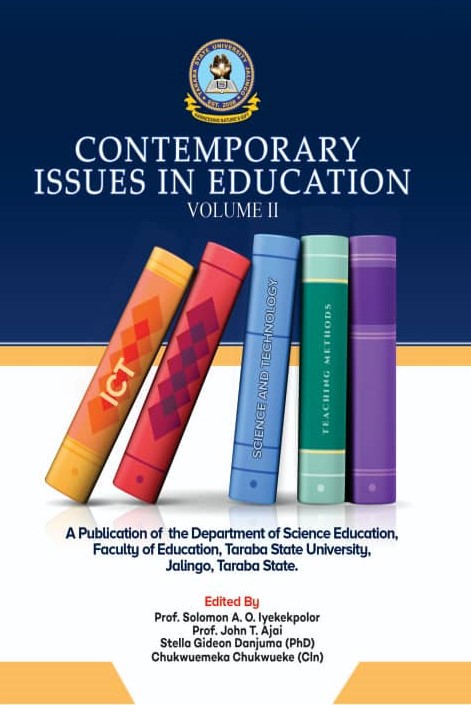The Crucial Role of Assessment and Evaluation in Science and Mathematics Education
Abstract
In the rapidly evolving world of the 21st century, a strong foundation in science and mathematics education has become more critical than ever. These disciplines are not just isolated subjects, but fundamental tools for understanding the world around us, solving complex problems, and driving innovation. Scientific discoveries and mathematical frameworks underpin technological advancements that shape our daily lives. Science education lays the groundwork for comprehending the natural world and the
scientific method. It fosters a spirit of curiosity and exploration, essential for scientific breakthroughs (National Academies Press, 2011). Mathematics, often referred to as the "language of science," provides the tools to quantify these phenomena, enabling precise calculations, modelling, and data analysis – all crucial for designing and building new technologies (National Council of Teachers of Mathematics, 2014).
Science and mathematics courses are breeding grounds for tackling complex problems. Students learn to approach challenges systematically, analyze data critically, and think creatively to arrive at solutions. These transferable skills are invaluable in fields like engineering, computer science, and other technology-driven sectors (Honeyman & Moscovitch, 2018). From artificial intelligence and robotics to medical breakthroughs and advancements in renewable energy, a strong understanding of STEM fields allows individuals to contribute to and benefit from this continuous progress (Bybee, 1997).
The rise of AI hinges on mathematics, particularly the application of machine learning algorithms and robust data analysis. Scientists with a strong grasp of biology and cognitive science contribute to the development of AI systems that mimic human intelligence (Bostrom, 2014). Innovations in solar, wind, and geothermal energy require engineers with a deep understanding of
physics and mathematics to design efficient energy capture and conversion systems (Bybee, 1997). The field of biotechnology, encompassing genetic engineering and medical advancements, thrives on a foundation in biology, chemistry, and mathematics to model complex biological processes and develop new life-saving technologies (National Academies Press, 2016).
Learning science and mathematics cultivates the ability to question assumptions, analyze evidence, and draw logical conclusions. This critical thinking is essential for evaluating the feasibility of new technologies, identifying potential risks and benefits, and ensuring ethical considerations are addressed throughout the development process (OECD, 2018). Science and mathematics education cultivate essential critical thinking skills. Students learn to analyze data, construct arguments based on evidence, and approach problems from multiple perspectives (National Council of Teachers of Mathematics, 2000). These skills are crucial for success in STEM careers and highly valued in a wide range of professions and personal endeavours.
The 21st-century job market demands a diverse and adaptable workforce. Jobs in STEM fields are projected to grow faster than average, offering exciting career opportunities (Bureau of Labor Statistics, 2023). A strong foundation in science and mathematics equips individuals with the necessary skills and knowledge to compete in a globalised economy.
Science and mathematics are not just about memorizing facts. These disciplines encourage creativity and innovation by requiring students to experiment, explore new ideas, and find solutions to complex problems (National Research Council, 2012). This fosters a sense of curiosity and a willingness to explore the unknown, qualities essential for driving progress in all fields.

